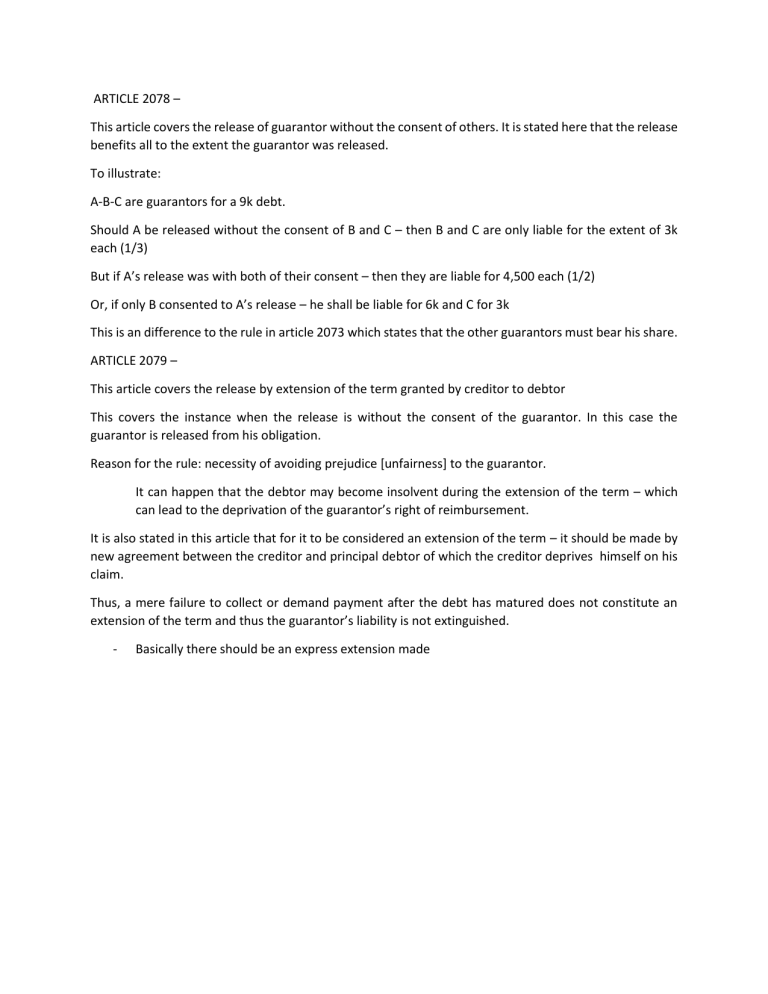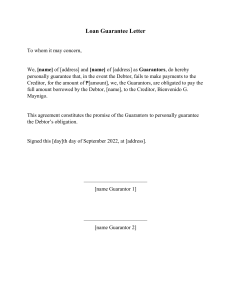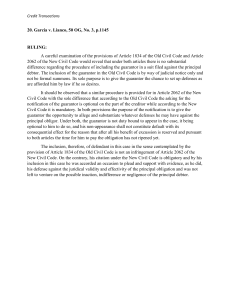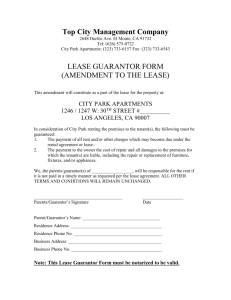
ARTICLE 2078 – This article covers the release of guarantor without the consent of others. It is stated here that the release benefits all to the extent the guarantor was released. To illustrate: A-B-C are guarantors for a 9k debt. Should A be released without the consent of B and C – then B and C are only liable for the extent of 3k each (1/3) But if A’s release was with both of their consent – then they are liable for 4,500 each (1/2) Or, if only B consented to A’s release – he shall be liable for 6k and C for 3k This is an difference to the rule in article 2073 which states that the other guarantors must bear his share. ARTICLE 2079 – This article covers the release by extension of the term granted by creditor to debtor This covers the instance when the release is without the consent of the guarantor. In this case the guarantor is released from his obligation. Reason for the rule: necessity of avoiding prejudice [unfairness] to the guarantor. It can happen that the debtor may become insolvent during the extension of the term – which can lead to the deprivation of the guarantor’s right of reimbursement. It is also stated in this article that for it to be considered an extension of the term – it should be made by new agreement between the creditor and principal debtor of which the creditor deprives himself on his claim. Thus, a mere failure to collect or demand payment after the debt has matured does not constitute an extension of the term and thus the guarantor’s liability is not extinguished. - Basically there should be an express extension made





